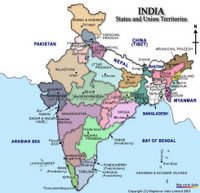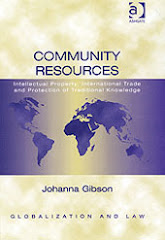
In earlier posts (see June archives, 7 June), the battle between Andhra Pradesh and Monsanto-Mahyco Biotech Ltd (MBBL), the Indian arm of Monsanto, was reported. To re-cap, the government of Andhra Pradesh sought an order from the Monopolies and Restrictive Trade Practices Commission (MRTPC) to lower Monsanto-Mahyco's prices on GM Bt cotton seeds. The MRTPC ordered Monsanto to charge no more than 750 rupees for 450g. Monsanto-Mahyco has appealed to the Supreme Court arguing that the fixing of prices is beyond the powers of the
 Andhra Pradesh government. However, in an interim order a few weeks ago, the Supreme Court refused to grant a stay of the MRTPC order. A full hearing is to take place 5 July, which will be followed in this discussion here.
Andhra Pradesh government. However, in an interim order a few weeks ago, the Supreme Court refused to grant a stay of the MRTPC order. A full hearing is to take place 5 July, which will be followed in this discussion here.Further to this battle, the Andhra Pradesh government hosted a meeting in Hyderabad earlier this month. In attendance were officials from Andhra Pradesh, Madhya Pradesh, Gujarat, Karnataka, Maharashtra, Tamil Nadu, and West Bengal. This meeting produced a common memorandum of understanding to join all states as a party before the MRTPC and Supreme Court of India. The governments of Punjab and Haryana sent letters in their absence, in order to demonstrate their suppo
 rt for the united effort.
rt for the united effort.An update of events has been published in the Weekly Highlights for India, published by the United States Department of Agriculture (USDA) in a Global Agriculture Information Network (GAIN) report. In that report, it was noted that the state governments have also appealed to the federal government to speak on their behalf before the Supreme Court.
Monsanto is quoted in that report as arguing that prices should be market-driven. This is in response to the questions of Mahyco-Monsanto regarding the marked differences in pricing between India and China, prices being much lower in China. Monsanto has argued that different agricultural practices in China (18 times more seed per acre is required) are also relevant to the market and thus the pricing. According to the GAIN report, "any state intervention would go against the intersts of farmers."
On the other hand, it might also be argued that this kind of intervention is critical to the market. Competition law must be concerned not only with the competition between players, but also with the benefit to consumers and thus to the market itself - one into which new players can enter.
The 5 July hearing promises to be an important development in competition law in India.



No comments:
Post a Comment